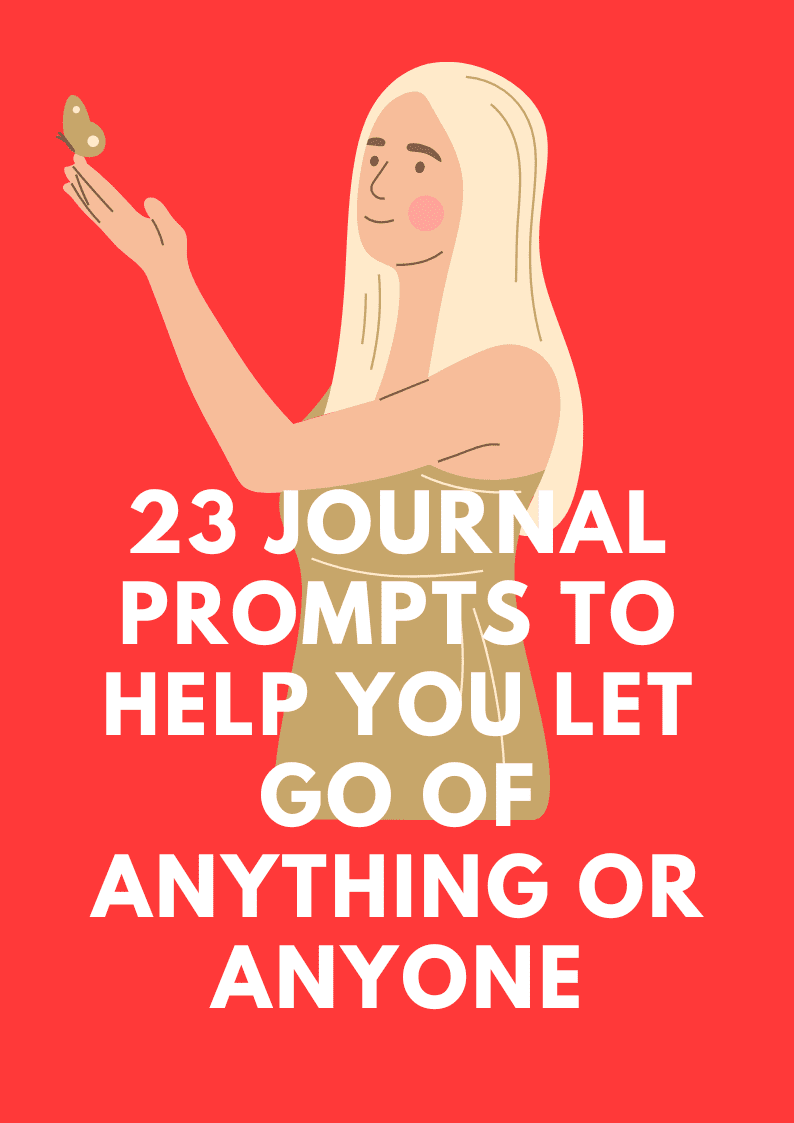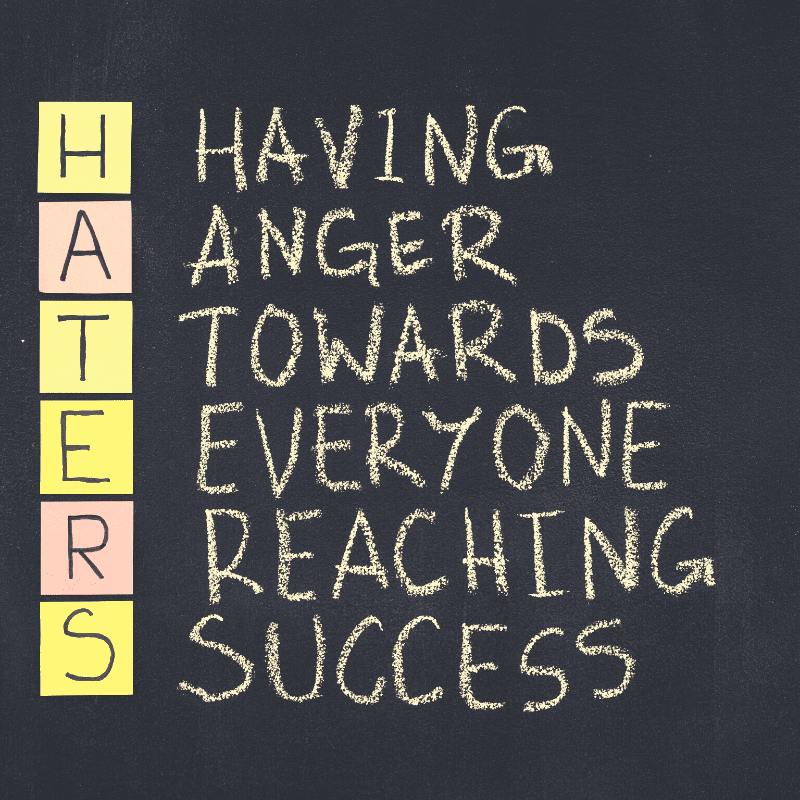When something is bothering you, it can be hard to let go of it. You may feel like you’re stuck in a loop, replaying the same thoughts or feelings over and over again. It can be tough to find a way to break free. But it’s not impossible. There are things you can do to help yourself let go and move on.
One way to start is by writing about what’s going on. Putting your thoughts and feelings down on paper can help you see them more clearly and make them feel less overwhelming. It can also be a huge step in working through them and moving on.
23 Journal Prompts That Can Help You Let Go
1. What Is Something Or Someone I Need To Let Go Of? (Get detailed!)
First, get clear on exactly what is plaguing you. Is there a specific person or situation you need to let go of? Or is it a more general feeling, like anger or sadness? Write down as much detail as you can.
2. Why Do I Need To Let Go Of This?
Once you’ve identified what you need to let go of, ask yourself why. What purpose is it serving in your life? Is it helping or hurting you?
3. What Are The Negative Consequences Of Holding On?
Think about what would happen if you don’t let go of the person or thing bothering you. Would anything bad happen?
4. What Are The Positive Consequences Of Letting Go?
On the flip side, what good could come from letting go? Would you feel lighter, freer, or more at peace?
5. What’s Stopping Me From Letting Go?
Now that you know why you need to let go, it’s time to figure out why you haven’t been able to do it yet.
What’s holding you back?
6. Would I Be Able To Forgive The Person Or Thing I Need To Let Go Of?
This is a tough question, but an important one.
If you’re struggling to let go of something, it may be because you haven’t forgiven the person or thing involved.
Can you see your way to forgiveness?
7. Would I Be Able To Forget The Person Or Thing I Need To Let Go Of?
This is another difficult question, but again, it’s worth considering.
If you’re holding onto something, it may be because you can’t forget what happened.
Is forgetting possible, or even desirable?
8. How Would I Feel If I Let Go Of The Person Or Thing Bothering Me?
Try to picture yourself after you’ve let go. What would that feel like?
Would you be relieved, happy, or peaceful?
9. What Steps Do I Need To Take To Let Go Of The Person Or Thing Bothering Me?
If you’re ready to let go, what do you need to do?
Are there any concrete steps you can take, like cutting off contact or throwing away reminders?
10. What Would Happen If I Just Ignored The Person Or Thing Bothering Me?
This isn’t always the best option, but it’s worth considering. What would happen if you just pretended the person or thing didn’t exist? Would that make it easier to let go?
11. What’s The Worst That Could Happen If I Let Go Of The Person Or Thing Bothering Me?
It’s important to be realistic about the risks of letting go.
What’s the worst that could happen?
Would you be in danger, or would you just feel uncomfortable?
12. What’s The Best That Could Happen If I Let Go Of The Person Or Thing Bothering Me?
It’s also important to consider the potential rewards of letting go.
What’s the best that could happen?
Would you feel better, or would your life improve in some other way?
13. Will The Worst-Case Scenario Actually Happen If I Let Go Of The Person Or Thing Bothering Me?
Once you’ve considered the worst that could happen, take a step back and ask yourself how likely it is to actually happen.
Are you overestimating the risks, or are they really as bad as you think?
14. How Likely Is It The Best-Case Scenario Will Actually Happen If I Let Go Of The Person Or Thing Bothering Me?
Similarly, how likely is it that the best case scenario will come to pass? Are you being realistic about the potential rewards of letting go?
15. What Would I Do If The Worst-Case Scenario Came To Pass?
It’s always good to have a plan B, just in case things don’t go the way you hope. If the worst happens and you let go of something, what will you do?
16. What Would I Do If The Best-Case Scenario Came To Pass?
On the flip side, it’s also good to know what you’ll do if things go better than expected. If everything goes right and you let go of whatever’s bothering you, what will you do with your newfound freedom?
17. How Will I Know When I’m Ready To Let Go Of The Person Or Thing Bothering Me?
This is an important question to consider. There’s no right answer, but it’s something you should think about before making any decisions.
How will you know when you’re really ready to let go?
18. What Will I Do If I’m Not Ready To Let Go Of The Person Or Thing Bothering Me?
And on the other hand, what will you do if you’re not ready to let go?
Will you give yourself more time, or will you try another approach?
19. What Is The Biggest Cost Of Holding On To The Person Or Thing Bothering Me?
There’s always a cost to holding onto something, whether it’s your time, your energy, or your mental and emotional well-being. What is the cost of holding onto the person or thing bothering you?
20. What Is The Cost Of Letting Go Of The Person Or Thing Bothering Me?
Conversely, there’s also a cost to letting go. Are you prepared to pay that price?
21. What Resources Can I Turn To For Help Letting Go Of The Person Or Thing Bothering Me?
There are plenty of resources out there to help you let go. What resources can you turn to for help?
22. What Are The Potential Roadblocks To Letting Go Of The Person Or Thing Bothering Me?
There may be some obstacles in your way when it comes to letting go. What are the potential roadblocks, and how can you overcome them?
23. What Would Life Look Like 10, 20, 30, Or 40 Years Down The Road If I Can’t Let Go?
It’s important to think about the long-term effects of not letting go. What would your life look like 10, 20, 30, or 40 years down the road if you can’t let go?
No matter what’s causing you pain, it’s important to remember that you have the power to let go. These journal prompts can help you reflect on your situation and make the decision that’s right for you.





